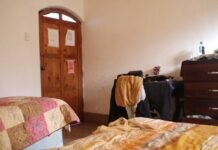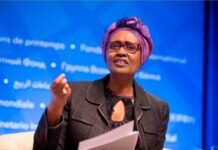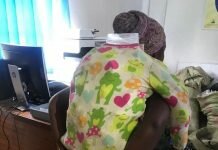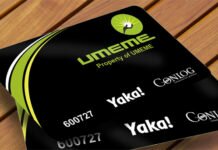
By Moses Kaketo
The good old days: Gone are the days when insurance in Uganda was all about National Insurance Corporation (NIC), now National Insurance Corporation holdings-composed of [NIC General Insurance and NIC Life Assurance]. They were so dominating that insurance students knew only of one company: -NIC
The rate at which the former giant is losing market share is worrying. According to the 2020 Insurance Regulatory Authority market report, NIC commands a 3% market share in non-life business and a 0.42% market share in life business.
Last week, the regulator, the Insurance Regulatory Authority, suspended NIC Life Assurance Company Limited License No. IN/030/2020 from underwriting new businesses as a life assurance company, with effect from August 24th, 2022. In a press statement, the IRA also warned members of the public not to seek insurance services from the insurance firm.
The suspension points to one thing—a struggling company is shaken by the competition. This is bad for a company that commanded the whole sector before the government of Uganda sold 60% of its shares in NIC to Nigeria’s Industrial and General Insurance Company Limited (IGI)
Everything at NIC holdings seems to be on a down spiral-the company’s net profit, total assets, and net premiums, the group’s retained earnings are all falling. The company’s share price on USE hit an all-time low of Ugx. 06, up from Ugx. 45 a few years ago at its IPO. This makes NIC the worst performer on USE.
How did it get to this bad?
The South Sudan: The Garang chopper crash
The insurance firm had to dig deep into its pockets to buy a new helicopter for the army. In March 2006, the insurance firm paid $3,366,000 (over Ugx. 06 billion) to the government in compensation for the presidential Mi-172 helicopter, which crashed in 2005, killing former Sudanese Vice President Dr John Garang.
The company suffered losses that it has yet to recover from. The lack of proper understanding of business and the Uganda market in particular made matters worse.
Makerere University staff saga
The current challenges of NIC Holdings can be traced back to 2010, when a row emerged with Makerere University staff over Ugx.16 billion. The UGX. 16 billion was amassed while the insurance company ran a staff pension scheme.
In December 2010, the insurance firm paid Ugx. 5bn as part of the 16 billion claim. Later, the company had to release one of its strategically located building [housing BRAC Uganda Bank] in the central business district to the university staff. The legal instrument of settlement was handed over to the Chairperson of the Council-Makerere University, Mrs. Lorna Magara, by the then preceding Chairman, Dr. Martin Aliker, alongside the MD NIC holdings, Mr. Bayo Folayan.
The loss of this strategic building partly explains the fall of the company’s assets.
While the insurance firm finally met its obligation, the company faced a bad corporate image. The company lost a number of key corporate accounts to competition.
Top risk advisers were poached
Some of their top risk advisers were poached by competitors, and they took their customers with them.Customers build a lot of relationships and allegiance with the brokers/risk advisors, and if the broker changes employment, they move with over 80% of their clients. Most of the company’s business was through brokers, who switched it to competition as brokers must insure with companies that are responsive and dynamic.
lose their monopoly on government properties
The liberalization of the insurance sector meant NIC holdings lost control over government properties. It is now open to cutthroat bidding, and the winner takes it all. One such account the insurance firm lost is Uganda Management Institute, from which they used to earn almost free money, as records show that there were hardly any claims by UMI for all the years they paid premiums. A source within the insurance firm says they used to charge/earn over Ugx. 10m per building insured. The Institute has six buildings.
The company also earned hefty fees from insuring UMI’s electronic gadgets and Worker man’s compensation to over 250 staff. This is just the tip of the iceberg; sources within NIC holdings told us how, over the years, companies have been shifting business to rivals.
According to analysts, you may have been there before, but changes demand new models, and when you fail to adapt to the changes, you are destined for dark days. Changes in tastes, technologies, demographics, etc. call for new thinking.
The staff changes should start from the top. The top management team is made up of the same old guys—they have been there—managing director Mr. , and company secretary Bayo Folayan. The two have been around watching the company collapse.
“Mr. Bayo is one guy. You don’t know whether he is competent enough to manage the company or not. But he is there, “said a financial analyst.
He adds: The board also needs a shakeup: the company has 17 members dominated by Nigerians. What do they know about the Uganda market?
NIC: Where are the new products?
Insurance is a business of giving people “peace of mind.” This means that you must come up with products that are in response to things that worry the prospective customers—people are worried about death, loss of property, loss of earning potential, sudden legal costs, and a plethora of other risks that await every day you breathe. With ICT, people are now worried about being hacked or their brands getting bad publicity by an irate client on the social networks. Insurance must continuously do research and come up with such products, e.g., Cyber Insure, to cover anyone’s costs to manage their online reputation in case of a hack attack or malicious posting of private information. That is the innovation we are talking about. We ask NIC: where are the new market driven products?
Competition has not only recruited, but they have also trained and motivated their teams.
Cash strapped NIC
NIC forgot, sorry, failed to pay dividends for so many years. It has instead resorted to issuing bonus shares, raising a red flag.
NIC building located on plot 3 Pilkington Road, which also serves as their head office, the insurance firm used to earn additional income. However, the rise of new modern buildings with modern amenities saw tenants move away, leaving empty spaces. The cash-strapped NIC has failed to give the building a facelift.
also read: What is the future of DStv? Is the once mighty entertainment company on its last legs?
Asset stripping?
At the time of the takeover, NIC had strategic or corner plots in major towns across the country. Unconfirmed reports say the majority, if not all, of these plots have since been sold off. At the IPO, NIC raised Ugx. 9.5 billion. One wonders how this money was used and why the regulators are not reining in on the quality of leadership to account for the significant fall in the company’s capitalization.
Western African jinx?
Generally, Western African companies have had a rough time doing business in Uganda and have either closed down like Global Trust Bank, been acquired or are still struggling to attain break-even after years of operation like United Bank Africa and Eco Bank.
read: Wave sacks over 300 staff; As MTN finalizes plans to launch a fighter brand
As NIC tries to come up with a winning blueprint, the market has been invaded by regional, continental and global players with both money and experience. This is expected to give NIC hard times.
Industry experts say NIC Holdings may have to rebrand and do a re-launch of the company to assure clients that they are a company worth working with and have the capacity to pay. The company needs a major shakeup in top management, implementing modern market-driven policies to match rivals, especially improving on their e-commerce presence. They may also need to recruit and motivate staff whilst they will be written off sooner rather than later.
About the author: The writer is a marketing and distribution expert. He sees business in everything. He loves writing business news, reviews, and analyses. Reach him on or Twitter: @mkaketo LinkedIn: Moses Kaketo
also read: The rise & rise of Stabex International: now occupies No.3 after Shell & TotalEnergies














































